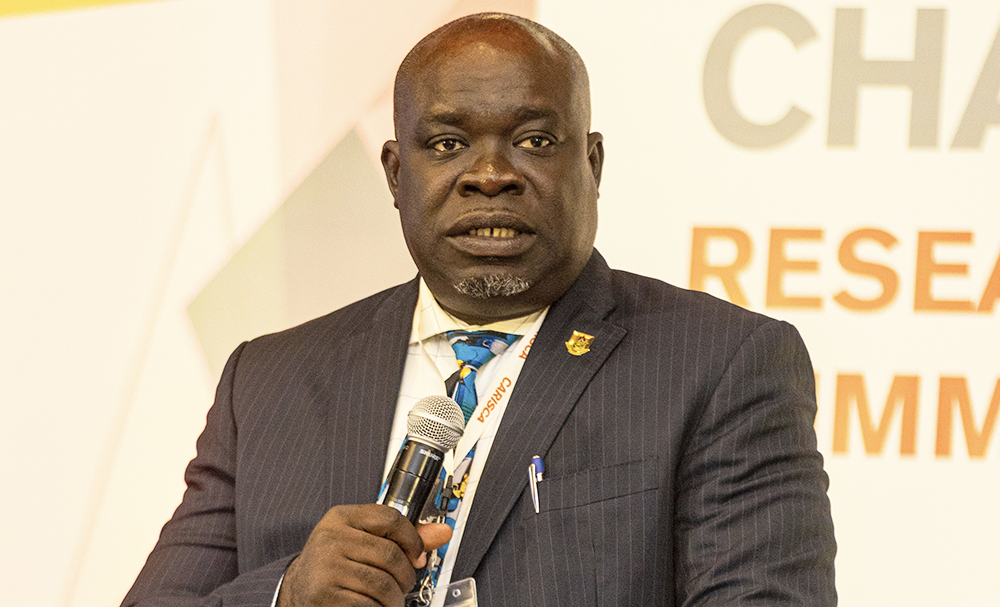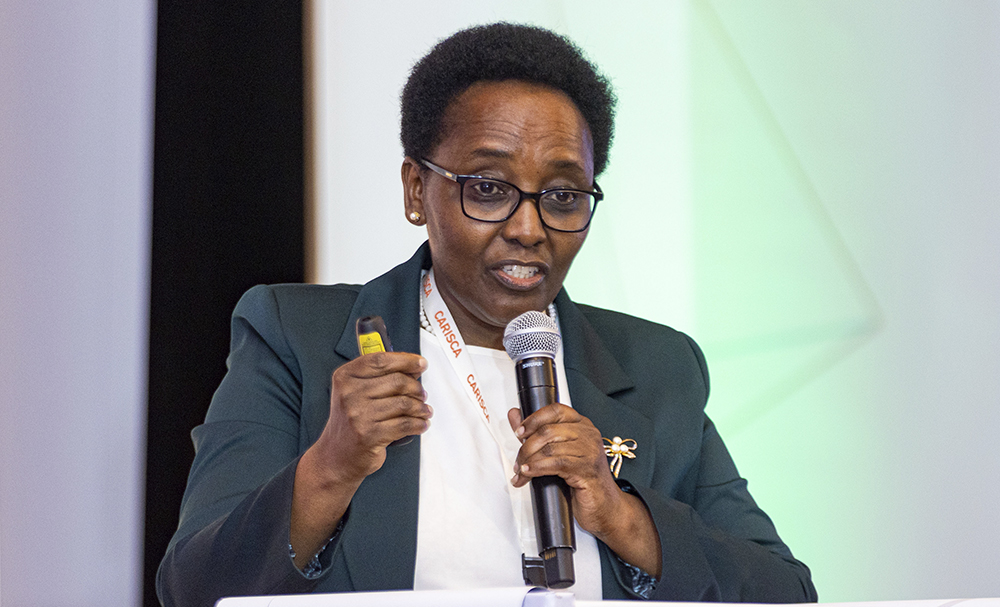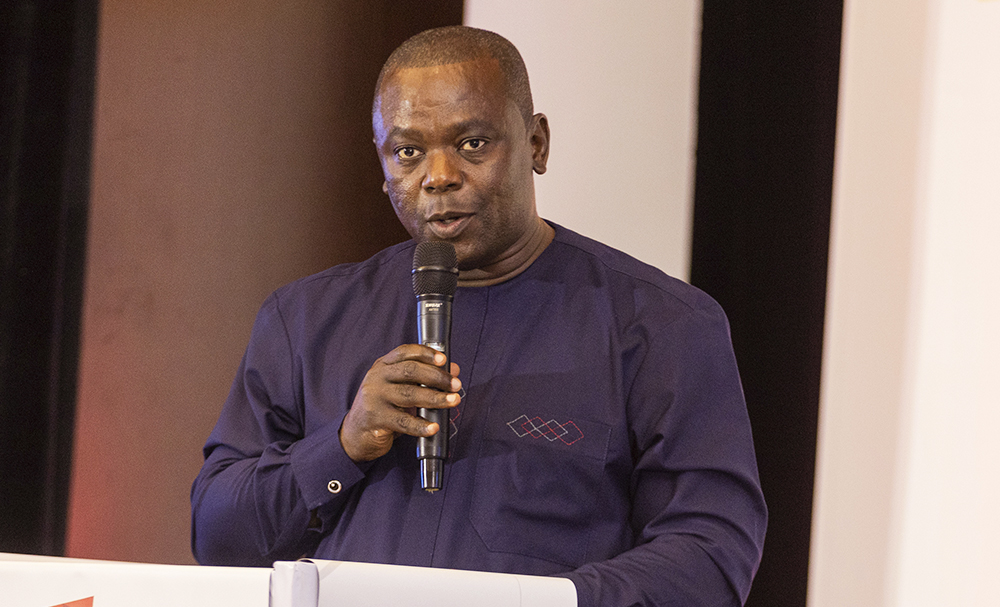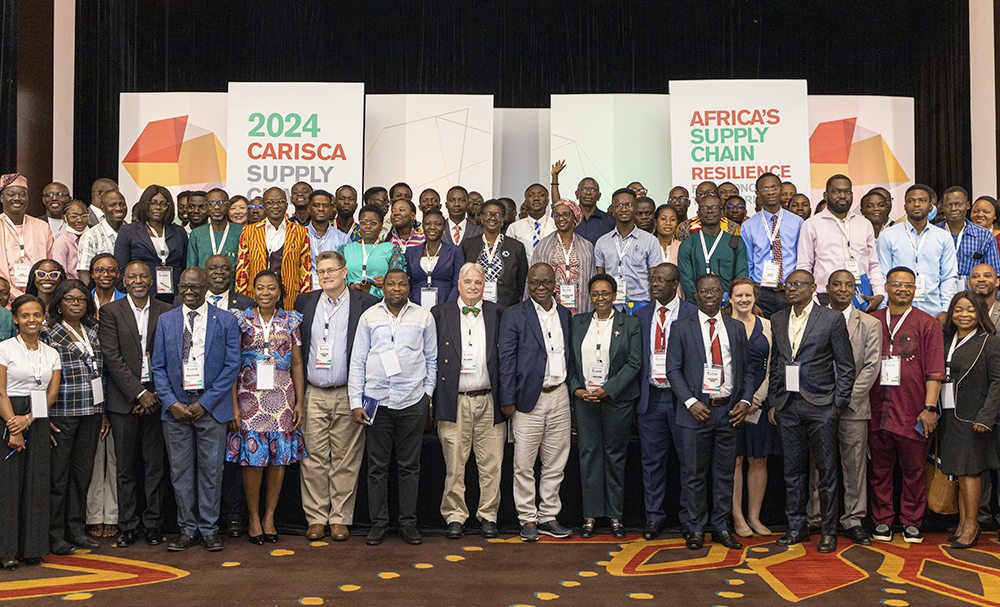The Centre for Applied Research and Innovation in Supply Chain-Africa (CARISCA) at the Kwame Nkrumah University of Science and Technology (KNUST), Kumasi, held the 2024 Supply Chain Summit on the theme: “Africa’s Supply Chain Resilience for Economic Transformation” from 4th to 6th June 2024, at the Kempinski Hotel in Accra, Ghana. This three-day summit is central to CARISCA’s goal of integrating Africa’s supply chain research into mainstream research and strengthening African supply chain capacity. The annual event is the largest academic supply chain conference in Africa.

In a speech read on behalf of the Vice-Chancellor, the Provost of the College of Humanities and Social Sciences, Professor Charles Ofosu Marfo, described the theme as “timely” and “significant.” He emphasised that it explores and addresses the pressing challenges and opportunities within Africa’s supply chain landscape. He encouraged participants to be inspired by the opportunity to share new knowledge on supply chains, which he believes will pave the way for innovative solutions to enhance Africa’s supply chain resilience and contribute to the broader goal of economic transformation across the continent.

Professor Nathaniel Boso, Director of CARISCA, explained that the summit seeks to highlight Africa’s developmental challenges to the global community. According to him, securing research funding in Africa is challenging, as African governments allocate a minimal percent of their GDP to research, far below the recommended percentage. To address this issue, academics from time to time seek support from international development partners. Therefore, one of the summit’s objectives is to showcase Africa's research capabilities while highlighting the need for research funding. Additionally, the summit aims to introduce younger scholars to best practices in research and networking.

Delivering a keynote address on “Leveraging Technology and Innovation to Build Resilient Supply Chains in Africa,” Dr. Lydiah Kiburu, Group Director for Business Transformation, Brand and Culture for Equity Group Holdings Plc, Kenya, noted that supply chains are the backbone of any economy, connecting producers, suppliers, manufacturers, distributors, retailers, and consumers across different geographical locations. She intimated that supply chains facilitate trade by serving as the arteries through which goods, services, and information flow to customers locally and across borders.
Dr. Kiburu highlighted the transformative impact of digitisation on cross-border commerce for Micro, Small, and Medium Enterprises (MSMEs), leading to the emergence of micro-multinationals and reducing dependency on large suppliers. Regarding the shared economy, she noted that white-label platforms are enabling faster and easier methods to establish commerce sites, rent server space, and outsource critical tasks such as legal services, accounting, and marketing. Leveraging remote work, she added, decreases costs, and improves efficiency. Dr. Kiburu also highlighted that some new forms of communication, such as social media, can help increase transparency and exposure.

In a related event, a dinner was hosted for participants, featuring a keynote address by Mr. Atoapem Frimpong Barimah, Senior Manager of Supply Chain at Newmont Ghana on “Africa’s Supply Chain Resilience for Economic Transformation.” Mr. Frimpong highlighted that history has seen countless examples of transformational changes reshaping societies, economies, and industries. “From the industrial revolution to the digital age, transformative moments have propelled humanity forward, unlocking new opportunities and reshaping the world as we know it. But behind every moment of transformation lies a silent yet indispensable force: the supply chain, which is the unsung hero, the invisible backbone that supports and sustains change,” he remarked.
Mr. Frimpong highlighted the historical significance of supply chains in driving industrial progress and noted their role in facilitating the global flow of information, goods, and services in the digital age. He emphasised that supply chains are vital for daily economic activities across industries. However, he cautioned about the recent pressures faced by global supply chains, including trade disruptions, economic uncertainties, geopolitical events, and natural disasters.
He called for the development of Regional Value Chains (RVCs) through initiatives such as the African Continental Free Trade Area (AfCFTA), noting that African participation in regional supply chains is significantly lower than in other regions.
A record number of over 140 research papers were delivered at the summit this year. In addition to these presentations, the conference featured other keynote speakers, a journal editors panel, a women in supply chain panel, a session on the Ghana and Kenya Logistics Managers Indexes, and a PhD Dissertation Awards competition.
CARISCA is a partnership between Kwame Nkrumah University of Science and Technology (KNUST), Kumasi and Arizona State University, with support from the United States Agency for International Development (USAID. The CARISCA Centre at KNUST aspires to become a globally recognised, locally owned hub for generating and translating innovative research into positive development outcomes for Ghana and pan-African supply chains, promoting self-reliance.

















